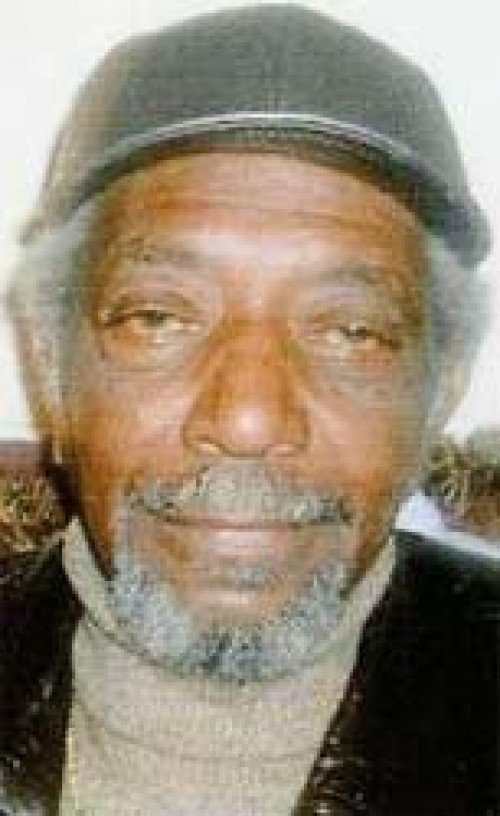March 25
March 25, 2009
Vernal Oliver Sr.
March 27, 2009The new president of the Houma-based National Mariners Association, which represents workers on smaller vessels, said he will try to improve relations between local industry and the U.S. Coast Guard and to boost the association’s image.
Joseph Dady, a towboat captain who works in New York Harbor, was appointed to the vacant presidency on March 1 by the association’s board.
“Our mission is safety and job quality for mariners,” Dady said.
The 150-member association, headquartered at 124 North Van Ave. in Houma, claims to represent “lower level” workers like deckhands, cooks and engine room personnel on boats weighing less than 1,600 tons. Most are not members of unions.
Formed in 1999 as the Gulf Coast Mariners Association, the group changed its name last year after expanding the area it represents, mainly to the East Coast.
Dady described the GCMA as “a group trying to organize the industry in the Gulf.”
The association insists it is not a union and does not engage in collective bargaining or deal with contracts. However, the GCMA was established by four mariners unions and received funding from them for several years.
“From that, the GCMA went out on its own to become a lobbying group,” Dady said.
In 2000, the association’s then-field director David Eckstein, a former Teamsters organizer, said he was not opposed to unionization. The group had picketed outside the offices of Edison Chouest Offshore in 1999, protesting that the company intimidated employees out of joining the group.
Shortly after, Eckstein left the association to head the newly-formed union Offshore Mariners United, which later picketed Trico Marine Services.
“We hope to change the perception that (GCMA) was a disgruntled mariners rogue organization,” Dady said. “Some of that is obviously true, there were some disgruntled people. I wasn’t there, I can’t say. We’ve done work to break away from that.”
Dady said his group will not become a union.
“There’s plenty (of unions) out there for them (merchant mariners) to join,” he said.
Steve Griffin, who heads the Houma-based anti-union group Concerned Citizens for the Community, disagreed with Dady about the possibility of the association becoming a union.
“If history is any indicator of what is going to happen, this association…will try to get the companies around here to let their guard down and try to let employees to let their guard down and join the association,” Griffin said.
“Last time, the same people that were saying they were not a union started up a union,” he said. “If history is a good provider of what’s going to happen in the future, then I would say they’re very suspect.”
The association will seek financial help from unions, Dady said. Members pay annual dues of $36, but a mariner does not have to be a member to receive assistance from the association, Dady said.
“Lower-level mariners, the type we have down here, have no voice in anything,” said association secretary Richard Block. Creating the association was “an attempt to form an organization to speak with some type of authority. We’ve been speaking out.”
Besides lobbying Congress, most of the association’s work is vis-a-vis the U.S. Coast Guard. Dady is a member of the 16-member Towing Safety Advisory Committee, which makes recommendations to the secretary of Homeland Security on towboat safety issues.
The Coast Guard has regulated the work of merchant mariners since World War II, issuing mariners’ licenses and documents. But the association feels mariners have been treated heavy-handedly, especially since security was tightened following 9-11, according to Block.
At least one member of Congress has suggested creating a Maritime Safety Administration to absorb mariner credentialing.
Dady said the association works with the Coast Guard on its licensing policies and mariners’ health concerns.
The Coast Guard has increasingly transferred responsibility for evaluating mariners from its Regional Exam Centers to the National Maritime Center.
“We do individual work with mariners,” Dady said. “We help them review laws and procedures.”
Dady formed the group United Mariner in 2004 to help monitor the activities of the maritime center, which issues credentials to seamen.
Dady said The American Waterways Operators, the trade association for the towboat and barge industry in the U.S., has three full-time lobbyists but none representing labor. The association wants a full-time lobbyist in Washington, he said.
“AWO does a great job, but the voice from the mariners’ practical side doesn’t always get as much recognition,” he said. “It’s the fault, not of the industry, but of the guys out in the field. The National Mariners Association provides the voice to work with the Coast Guard to make the job safer.”
“In working with the Coast Guard and the industry, we agree on some things, others not,” he said.
Although he works in New York, Dady lives in Florida. He said he does not need to spend a lot of time in Houma because the association can hold meetings using technology like satellites, computers and cell phones.
The group hopes to hold elections for president and vice president next year. Dady is the second president in the association’s history. The first, Penny Adams, served from 1999 to 2003.
Dady said the six-year vacancy at president “was a matter that the organization needed to be improved.”
The absence of a president “has to do with the organization of the association,” he said. “One reason I took on the position was to do some organizing and get the elections for president and vice president.”
All board members and officers serve without pay.
“All it takes to be a member is to have an interest in maritime (affairs),” Dady said. “Your political beliefs don’t concern us. We have union members and managers and supervisors.”










